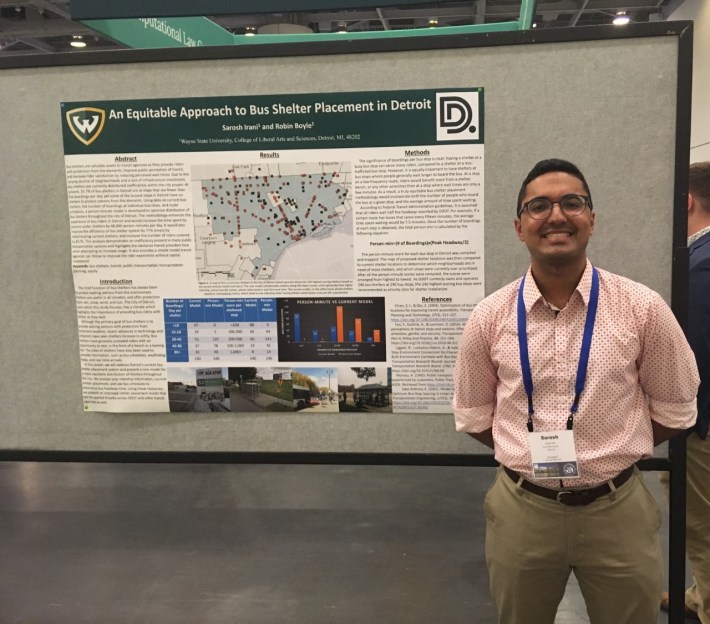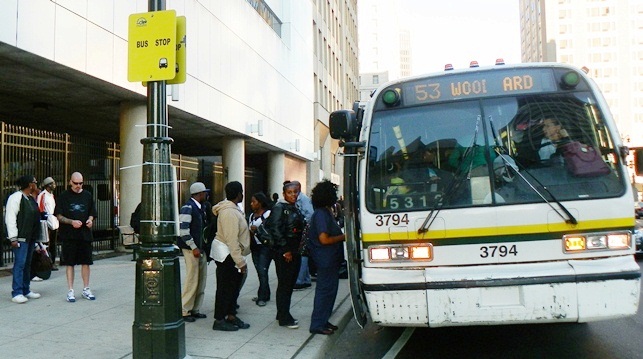Wayne State University student Sarosh Irani started noticing something odd about the bus shelters as he rode the bus through Detroit: They seemed to have been placed at random.
Crowds of people would board at a stop with no shelter. Then the bus would move on, passing stop after stop where the shelters were empty, thanks to stops that were barely used.
Working with a professor, Irani, an undergraduate public health student, won a grant to conduct a formal analysis — and the results bore out his anecdotal observations.
Irani found better-placed bus stops could roughly double the amount of time bus riders in Detroit spent in sheltered waiting environments daily, from 63,000 minutes a day to about 111,000.
They found almost a third of the stops with shelters — 27 percent — had less than five riders a day.
Just by moving existing bus shelters to better-used stops, the Detroit Department of Transportation could increase the number of people who have access to shelters by 817 percent.

Irani's analysis didn't find any evidence that wealthier neighborhoods were being prioritized for bus stops. Rather, DDOT had never adjusted the locations of shelters after some dramatic service cuts in 2012.
"The bus shelter placement policy hasn’t been updated to match Detroit’s fluctuating population in different neighborhoods," he said.
Only about 240 stops of the roughly 5,400 in Detroit have shelters.
But the findings present a potential opportunity he says. Irani estimates that bus shelters could be moved for cheaper than they could be purchased. He can't state the costs with precision, but he estimates moving shelters would cost between $5,000-$7,500 as compared to around $10,000 for buying and installing new.
"Without making a capital investment we can still improve Detroiters' experience at the bus stop," he said.
Right now, there aren't any formal city plans shuffle bus shelters around. But Irani's research could help inform police going forward. Plans for adding 200 bus shelters over the next four years were recommended as part of Detroit's new strategic plan for transportation.
Research has shown bus shelters account for a large portion of rider satisfaction, even in cities that don't have as winters as harsh as Detroit's. Irani said he thinks the same pattern would be found in other cities but he did not have enough resources to expand the study area in this project.






